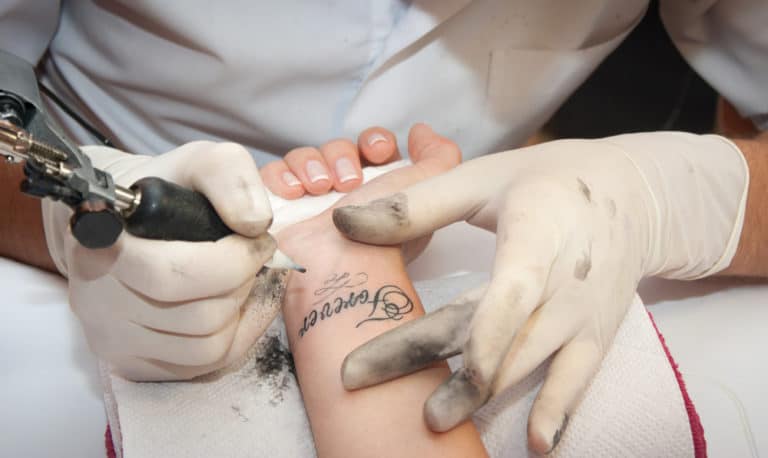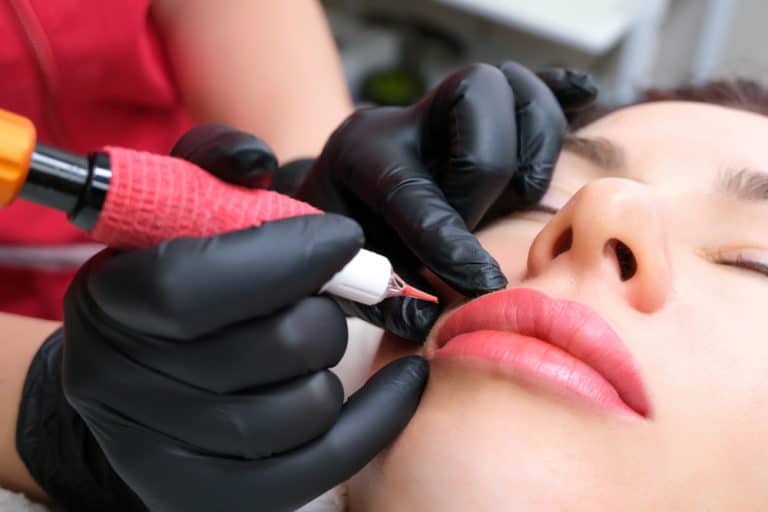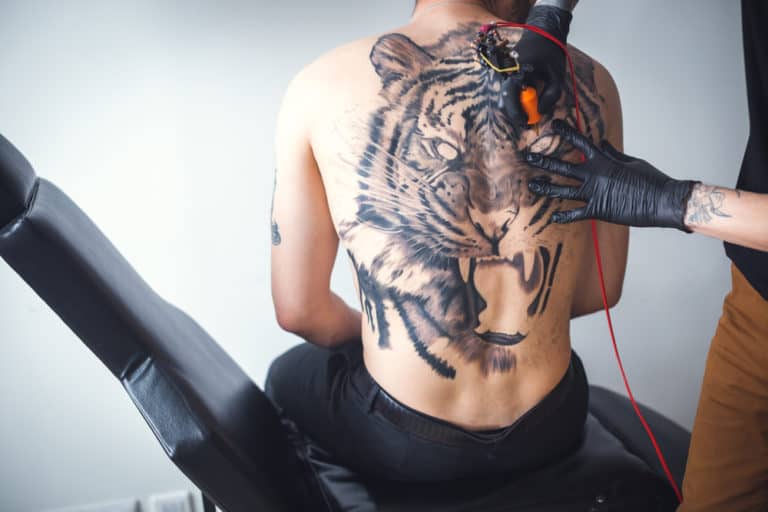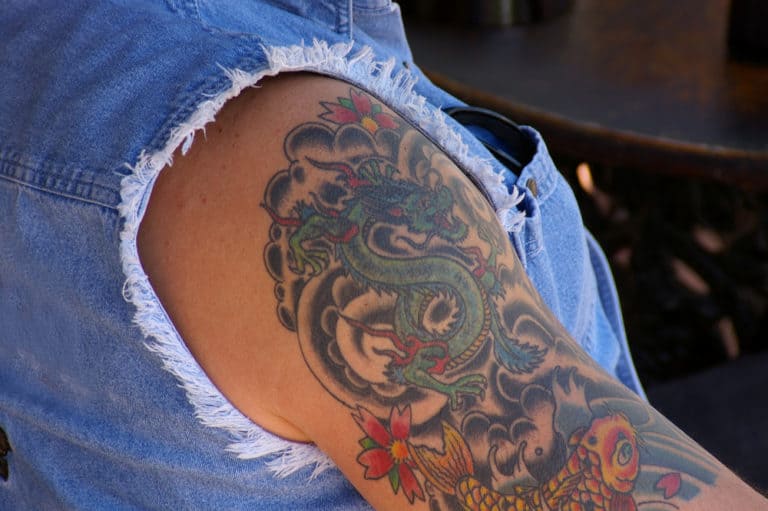Can You Smoke After A Tattoo?
I have been smoking for a couple of decades, my worst habit, I won’t lie, and after getting a tattoo, you can be sure that I light one up directly after. Made me think a bit, can we smoke after a tattoo has been inked into our bodies? Does smoking affect the tattoo process negatively?
Smoking heavily after getting a tattoo will affect the wound’s healing time, as smoking regularly reduces collagen production, which can cause pigmentation to bleed out of the tattoo, causing them to fade. One cigarette won’t affect the tattoo. Being a regular smoker will.
After getting inked, what is the effect of nicotine and the 7,000 + chemicals found in a typical cigarette on our bodies? Will smoking a cigarette affect the tattoo afterward, or is tattoos only affected if you’re a chain smoker?
Can We Smoke After Getting A Tattoo?
As a smoker, I can attest to smoking after doing almost anything. Most of the time, I smoke while doing it, and I tend to smoke automatically throughout my existence.
As a tattoo connoisseur, I recently asked myself if my smoking could affect the tattoo process, as I am not getting any younger, and injuries seem to take forever to heal.
Researching the topic, I found the following: Nothing concrete or official. We all know that smoking sucks and is not the healthiest choice one can make.
A typical cigarette contains up to 7,000 chemical compounds (many harmful ones) in its smoke, including some of the following:
With over 70 of theses found in cigarette smoke to be carcinogenic (Cancer-causing substances), I truly feel like nipping the habit in the bud as I am typing this article. I’m no doctor, but exposing a new tattoo to any of the above poisonous ingredients, seems like a bad idea.
Tattoos And Smoking
As mentioned, there aren’t a lot of studies or information available on the effects of smoking directly after getting a tattoo, only on how smoking affects the skin in the long run. And what effects do being a smoker have when your body needs to heal a wound (tattoo.)
According to a practicing nurse, Sarasvati Fautheree, if you are a heavy smoker, and you smoke heavily after getting the tattoo, it “could make you heal more slowly related to deoxygenation of tissues and cardiovascular effects of the tar, and other chemicals, found in cigarettes.”
She does mention, “That if you are young and healthy and aren’t smoking like three packs a day, you can generally get away with it.”
An article in Bustle highlights the fact that your skin’s elasticity can be affected by aging, hydration, and how being a smoker can change your skin and tattoos in the long run.
Also highlighted in the article is that smoking will reduce collagen production, a key ingredient in maintaining the skin’s elasticity, and could lead to the pigmentation bleeding out of the tattoo, causing tattoos to fade.
The act of smoking one cigarette after getting a tattoo will do little to no harm. It’s the constant smoking affecting your skin that you should be worried about. Regular smoking of tobacco products speeds up the aging process, starving the skin of oxygen needed to break down elastin and collagen.
Smoking causes the narrowing of blood vessels, which has a hard time carrying the following to a wound, slowing down the healing process:
- Oxygen
- Nutrients
- Healing Factors
Nicotine is known to cause the platelets (blood components) to clump and clot, also alleviating blood sugar levels resulting in a deceleration of the healing process, extending the duration of any pain involved.
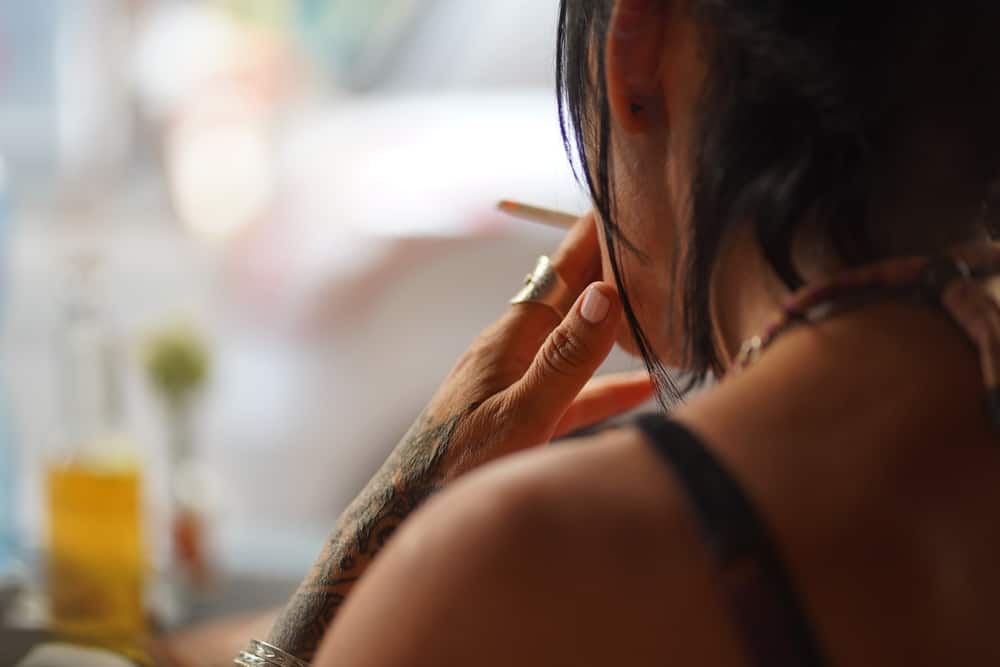
Removing A Tattoo From A Smoker’s Body
I don’t fall into the “remove my tattoo as in yesterday” group, as very thorough planning went into each of my body ink designs. However, some people fall into this group mainly due to the following scenario:
- Outgrowing a tattoo – people change, and having a tattoo done on a whim can lose its appeal over the years – your ex-partners face on your ribcage is a prime example.
Recent studies suggest that at least one-third to half of the people who have a tattoo want it removed. The success of removing a tattoo may depend on many factors, such as whether the tattoo that needs removing is on a smoker’s skin.
Why Is Tattoo Removal Less Successful For Smokers?
Large tattoos are harder to remove than smaller ones, with the colors black and red the easiest to remove. Yellow, green, and blue dyes are harder to remove, and a study found in the Archives of Dermatology suggests that smokers show poorer results when removing a tattoo.
Dermatologist and co-author of the study, Luigi Naldi (MD.), found that half of the tattoos were removed in 10 to 12 sessions when using a Q-switched laser, costing $100-$500 per session.
The study also found that:
- Older tattoos were harder to remove than new ones.
- Smoking, or being a smoker, lowered the chance of successfully removing a tattoo in 10 sessions by 70%.
Laser devices, like the Q-switched laser, are very effective at breaking up the ink in a tattoo so that your body’s immune system can flush it away. Generally, the immune system of a smoker is not that healthy, and for this reason, it takes longer to flush away the tattoo.
Quit While You’re Ahead
The best way of quitting smoking is not to start, but if you are like me and constantly have a cigarette between the fingers – it may be time to kick the unhealthy habit for good.
Your future tattoos will thank you as it heals quicker, your old ones will last longer, and should you, for whatever reason, have to remove one – your wallet will be most grateful.
Conclusion
Smoking heavily before and after getting a tattoo could lead to skin complications down the line. The effects of smoking after getting a tattoo can be minuscule and without much consequence to the actual tattoo.
However, the long-term damage that cigarettes inflict on your body should scare any normal human into quitting pronto like yesterday already.
References
- Smoking, Ink Color Affect Laser Tattoo Removal (webmd.com)
- Ways to Quit Smoking: Cold Turkey, Nicotine Replacement Therapy, and More (webmd.com)
- https://prettyjust.com/what-to-avoid-after-getting-a-tattoo/
- https://www.insider.com/tattoo-mistakes-people-make-2018-3
- 5 Ways Smoking Is Ruining Your Skin, No Matter How Casual Of A Smoker You May Be (bustle.com)


